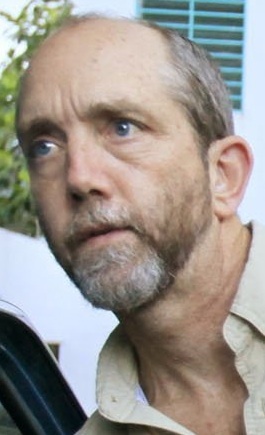Nathan Nickerson wasn’t planning to go back to northern Haiti so soon.
When he returned home to Portland 10 days ago, the city of Cap Haitien had just seen its first cholera cases. Now, there have been 600 to 700 cases in the city, and more people are getting sick each day because there isn’t enough clean water to drink.
And this week, violent street demonstrations shut down the city’s airport and major roads, complicating efforts to distribute water filtration and medical supplies.
So Nickerson, executive director of the Portland-based nonprofit Konbit Sante Cap Haitien Health Partnership, is on his way back. He was scheduled to fly to Florida today and reach Cap Haitien Friday — if he can fly into the airport.
More relief workers from the Portland area plan to follow him soon.
“It’s an emergency. It’s a critical situation,” he said Wednesday. “The numbers (of cholera cases) have dramatically increased in the north to really overwhelm the capacity there. I think we have something to really contribute in terms of battling that.”
The 10-year-old aid agency Nickerson directs works to improve health care in Haiti’s second-largest city, and has responded to past crises including the earthquake in January.
As of Wednesday, the cholera outbreak had killed 1,034 people nationwide and hospitalized 16,799, according to the United Nations Office for the Coordination of Humanitarian Affairs.
Cholera is transmitted by water or food that is contaminated by feces. It is an acute inflammation of the intestines that causes diarrhea and vomiting. Untreated, severe dehydration can kill within hours.
Haiti had not had a reported case of cholera for decades, although its lack of clean water sources and extreme poverty made the outbreak predictable, experts say. Some officials expect the epidemic to last at least six months and infect as many as 200,000 people.
To help fight the cholera outbreak, Konbit Sante has been working to bring in medical supplies such as intravenous fluids, as well as water treatment kits and disinfection tablets that could help slow the disease’s spread. Nickerson said he will work with the agency’s staff in Cap Haitien and other aid agencies to distribute the supplies.
Hugh Tozer, a water and wastewater engineer with Woodard & Curran in Portland and president of Konbit Sante, had planned to fly to Cap Haitien this week with two other volunteers from the Portland area to help expand access to clean drinking water.
“I was planning on going down Saturday, but with the current civil unrest I’ve decided to wait until things calm down a little bit,” he said.
Tozer was last in Cap Haitien in October, helping to install a water sterilization system at the city’s Justinian Hospital.
There are simply too many people without access to clean water to solve the problem by shipping bottled water, he said.
“There’s a need to understand what (water) sources are contaminated and help with treatment,” Tozer said. “You just can’t ship enough water to make it practical. You’ve got to treat the water they have.”
Security appeared to improve in Cap Haitien on Wednesday after riots began Monday over suspicions that the cholera was brought to Haiti by U.N. peacekeepers from Nepal.
Political uncertainty is clearly adding to the tension in Haiti, said Ann Lemire, a pediatrician with the Portland Public Health Department who was in Cap Haitien just before the cholera outbreak in October.
“There was a lot of agitation,” she said, because of the presidential election scheduled for Nov. 28.
Security issues are now complicating efforts to fight the cholera, said Nickerson.
“It’s been an incredible year for Haiti in every way. People are on edge. People are anxious. People are fearful,” he said.
Nickerson said he hopes the tension will ease soon so people can get medical care and clean water.
“The vast amount of people in these densely populated areas have no access to sanitary toilets or clean water. And as people flee the places where the epidemic is raging, they are carrying it to other places,” he said.
He said agencies such as Konbit Sante are not trying to muster large numbers of volunteers to flock to Haiti.
“It’s not a time or a place to go, unless there are things we can do to help,” he said.
The Associated Press contributed to this story.
Staff Writer John Richardson can be contacted at 791-6324 or at:
jrichardson@pressherald.com
Send questions/comments to the editors.



Success. Please wait for the page to reload. If the page does not reload within 5 seconds, please refresh the page.
Enter your email and password to access comments.
Hi, to comment on stories you must . This profile is in addition to your subscription and website login.
Already have a commenting profile? .
Invalid username/password.
Please check your email to confirm and complete your registration.
Only subscribers are eligible to post comments. Please subscribe or login first for digital access. Here’s why.
Use the form below to reset your password. When you've submitted your account email, we will send an email with a reset code.